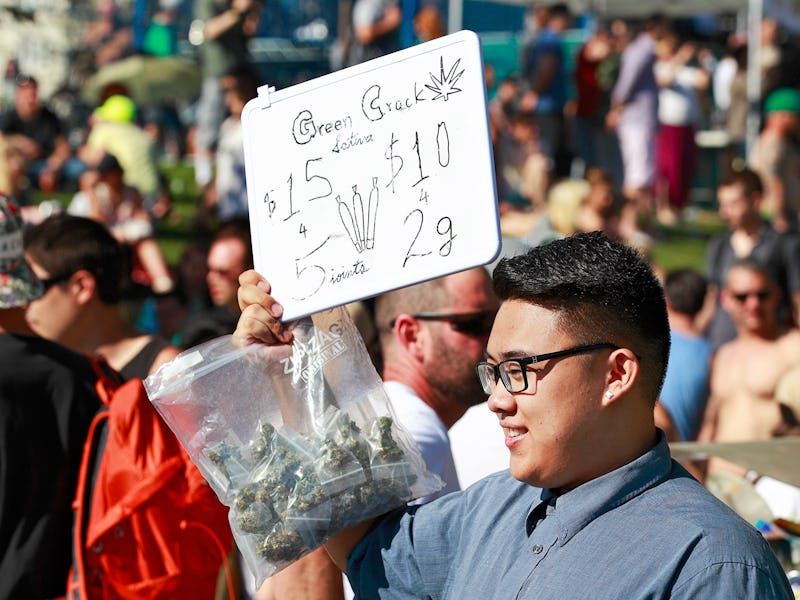U.S. Attorney in Massachusetts Says Anyone Can Now Be Prosecuted for Pot
"This is a straightforward rule of law issue.'

This week, the U.S. Attorney for Massachusetts attempted to clear up any confusion about how his office will prosecute marijuana-related offenses, and it looks like all parts of the marijuana industry in the United States could come under scrutiny.
In 2016, Massachusetts voters legalized recreational marijuana through a state-wide ballot initiative. Medical marijuana has been legal in the state since 2012.
But Attorney General Jeff Sessions’s announcement last week that federal prosecutors would be reneging on Obama-era policy that once allowed states the agency to govern marijuana policies on their own terms has put pot back in a legal grey area.
Andrew Lelling, the U.S. Attorney for Massachusetts, said in a statement that he couldn’t guarantee that individuals and businesses that were once essentially exempt from prosecution would be anymore.
“This is a straightforward rule of law issue,” Lelling said. “Congress has unambiguously made it a federal crime to cultivate, distribute and/or possess marijuana. As a law enforcement officer in the Executive Branch, it is my sworn responsibility to enforce that law, guided by the Principles of Federal Prosecution.”
That being said, Lelling admitted that the choice to prosecute will depend largely on whether it will be worth the use of “limited federal resources,” and that every criminal case would occur on a case-by-case basis. It’s possible that Lelling’s office will continue to focus on drug trafficking, but the tone and language seem to imply that mom and pop marijuana dispensaries — as well as local growers, and anyone possessing marijuana — is not going to be immune from criminal prosecution.
Last week, following Sessions’s publicized plan, Lelling issued a statement that was pretty adamantly anti-weed: “As the Justice Department has highlighted, medical studies confirm that marijuana is in fact a dangerous drug, and it is illegal under federal law,” he writes. “As a result, our office will aggressively investigate and prosecute bulk cultivation and trafficking cases, and those who use the federal banking system illegally.”
Although many studies have also confirmed that marijuana is not a dangerous drug, the message from the Justice Department is loud and clear. We haven’t seen any actual examples of federal enforcement under Sessions’s new plan yet, but if Lelling’s statement is any signal, Congress will need to put the pressure on for new federal legislation for marijuana, or states could get caught in the crossfire under the DOJ.